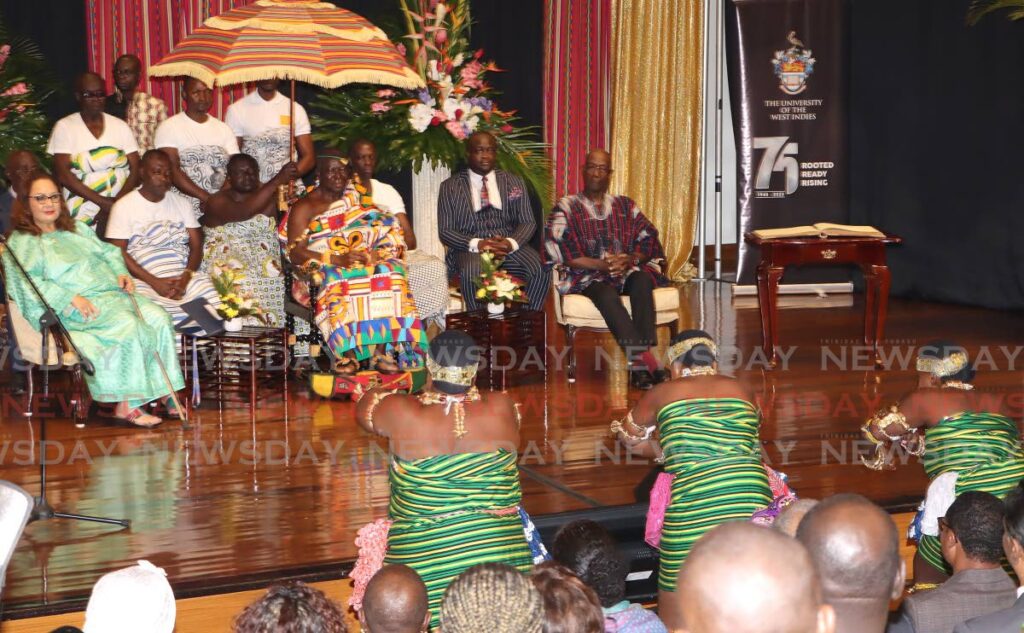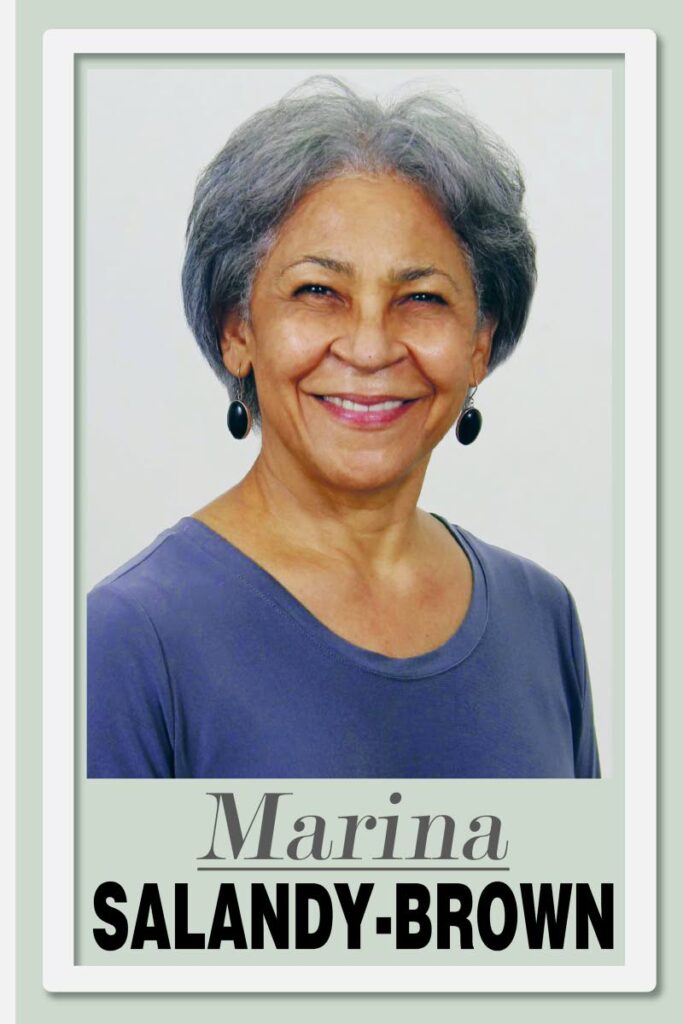Up, you mighty race!

“Up, you mighty race” was just one of the many famous lines of the great orator Marcus Mosiah Garvey, intended to encourage black people to free themselves from the enduring effects of slavery.
This week marks 136 years since the birth of Marcus Garvey, Jamaica’s legendary first national hero, who led the largest mass movement of people of African descent in history.
On Emancipation Day, on August 1, Asante King Otumfuo Osei Tutu II was the guest of honour at TT’s celebrations. In his speech to the vast crowd that paid homage and welcomed him, he recalled Garvey’s role in evoking a deep sense of pride in people of African ancestry. He echoed some of the questions posed by Garvey 100 years ago when he asked the descendants of former slaves to consider the true nature of their emancipation. Garvey and King Otumfuo Osie Tutu II both urged them to reflect upon their autonomy and the extent of their dependence on others, on the bigotry and inequalities they face.
The king stated, like Garvey did, that freedom to wallow in poverty cannot be true emancipation. He recommended that African leaders seek to have racial discrimination declared a crime against humanity and that students be taught correctly about the great African empires of the past.
Garvey was much more radical. He had studied African civilisations and drew upon that when he set about changing the economics that framed black inequality and impoverishment by establishing a parallel cultural world in which self-improvement, education, and culture and the arts were just as important as business, asset ownership and defence.
The vehicle of his design was the Universal Negro Improvement Association (UNIA), which he founded in 1914. In 1920, he engineered the very first international convention of Negro People of the World in Madison Square Garden, to which 25,000 followers marched from the UNIA headquarters in Harlem to hear him speak. The convention produced a declaration of rights for Negro People of the World which included the proclamation that black people would only answer henceforth to “Negro” (capital N) and never any more to “n----r.”
Making black people feel proud in how they presented themselves, in speech and attire, was an important element in his strategy, since he reasoned that one problem was how white people perceived black people. He dressed in stately and military gear and made it possible for UNIA members to follow suit. I interviewed some Garveyites in the 1980s and I remember the joy in their voices as they described their uniforms and the emotion attached to the powerful statement they made as they marched through the streets of Harlem as the African Legion, symbolically carrying rifles and causing worry among the US leadership of the time.
The size of Garvey’s ambition was greater than that of many modern Caribbean states and proved larger than his capacity to realise it, given his own inexperience and that of his members, and the formidable opposition ranged against him, both white and black.

Among his powerful detractors was leading African-American cultural icon WEB Du Bois, who used extremely injurious language against Garvey, and Trinidadian leftist intellectuals Geoge Padmore and CLR James.
James divulged to me 50 years later in an interview for the BBC that he had been wrong to consider Garvey a buffoon. The old man cried as he confessed that Garvey saw what he and others did not, that the big issue was always race, not class. It is interesting that James saw out his days in London living above the radical Race Today Collective office in Brixton.
But Garvey’s biggest foes were the US authorities who arrested and convicted him for mail fraud in 1923. He was also duped and thwarted in his early plan to create a great independent African republic in Liberia, funded by rubber, much needed for tyres and the expanding US automobile industry. And his Black Star Line shipping company, intended to establish a trading route between the USA, the Caribbean and Liberia, was also destroyed by deception and incompetence.
Garvey should be a subject of historical study for all Caribbean students, not because he was a genius or always got it right, but because he led a revolution to save his people, something unimaginable a century ago and which shaped our world today. Garvey’s ideology informed the great Pan-African movement that sought a new world order and African independence. Ghana, the first African country to become independent, designed its flag to bear the colours of Garvey’s UNIA – red, black and green, with a single black star.
Garvey made many serious miscalculations, for which he paid the price, but he had an extraordinary vision and he uniquely organised and unprecedentedly brought masses of African people together. At its height, the UNIA had several million members in 40 countries. It is an unequalled achievement.
One of the newest books about him is Marcus Garvey by Prof Emeritus Rupert Lewis, a short biography that focuses on Garvey’s Jamaican activities. It is part of the Caribbean Biography series from the UWI Press.

Comments
"Up, you mighty race!"